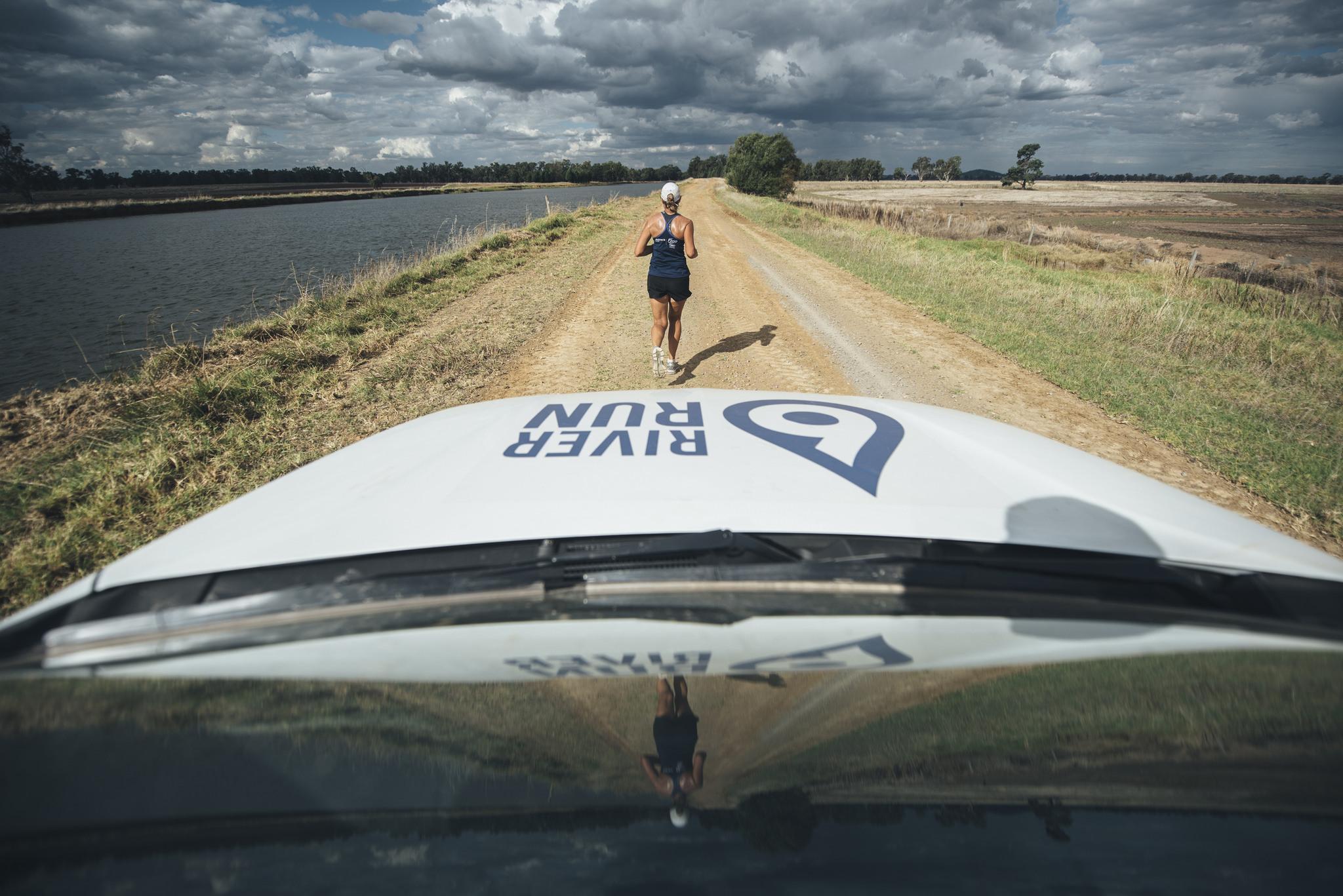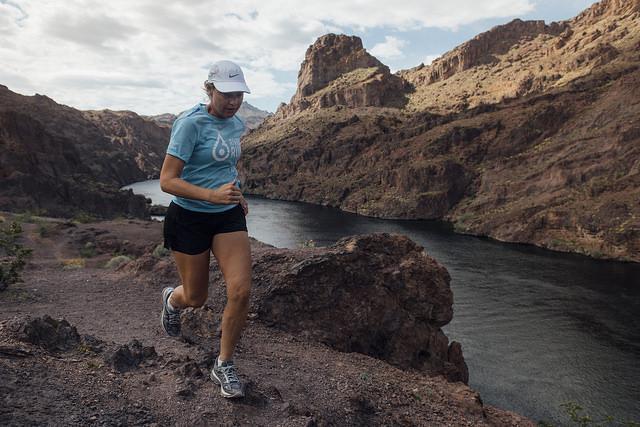Meet the 46-year-old woman running 40 marathons in 40 days
Think one marathon sounds tough? Meet the woman doing the equivalent of 40 of them in a mere 40 days

Your support helps us to tell the story
From reproductive rights to climate change to Big Tech, The Independent is on the ground when the story is developing. Whether it's investigating the financials of Elon Musk's pro-Trump PAC or producing our latest documentary, 'The A Word', which shines a light on the American women fighting for reproductive rights, we know how important it is to parse out the facts from the messaging.
At such a critical moment in US history, we need reporters on the ground. Your donation allows us to keep sending journalists to speak to both sides of the story.
The Independent is trusted by Americans across the entire political spectrum. And unlike many other quality news outlets, we choose not to lock Americans out of our reporting and analysis with paywalls. We believe quality journalism should be available to everyone, paid for by those who can afford it.
Your support makes all the difference.It sounds like an adventure of almost biblical proportions: running the equivalent of 40 marathons in 40 days, across six different countries, without thousands of fellow runners buoying you up and cheering you on. Add to the mix that it’s a 46-year-old corporate lawyer-turned-water activist making the attempt, and that she’s defied the people who told her she was too old (and female) to do it, and you might confuse Mina Guli for a superhuman.
Guli is running along six of the most famous rivers in the world in support of UN Global Goal Six – the promise to make water accessible to all by 2030. She started on 22 March, World Water Day, and has so far run the equivalent distance of one marathon every day along the Colorado, Amazon, Murray Darling and Yangtze rivers (all chosen to illustrate the scale of the global water crisis). When she spoke to The Independent, nearly a month into her quest, she was exhausted but exhilarated, having just ticked off China and about to head to Egypt to conquer the Nile.
Not that this has come easily. “People told me I couldn’t do this because I was female, or because I was too old and too fat,” she says. The naysayers piped down when she completed her first 40-marathon “mega-run” last year, ticking off no fewer than seven deserts in seven weeks. “Since last year, fewer people have made those comments,” she says. “Those who haven’t been supportive are not really a part of my life anymore.”
Her journey hasn’t been without problems, though. After injuring herself over Christmas, Guli was confined to just 15 minutes running a day until three weeks before she started. “I’m not young any more, so training means a lot of time in the gym doing weights and a lot of recovery time,” she says. “I’m not an athlete, I came to running very late in life. The fact that I’m here is testament to what happens when you believe in something much bigger than yourself.”
The extreme difference in climates has also brought its own weird challenges. “Colorado was dry and stuffy, we all ended up with sore throats and I was ragged from the dry heat. We then went straight to the Amazon where it was 37 degrees with 90 per cent humidity and heavy rain.”
Guli travelled with a medical support team for the first two river runs – luckily for her, when it came to the Amazon. “It was raining cats and dogs and I developed a lot of foot and limb problems as I was running on very muddy trails with waterlogged shoes,” she says. “I had to have a few of my toenails excavated with a scalpel on a boat in the middle of the river – much to the hilarity of local onlookers.” Once bandaged up, she carried on running “with big holes in my feet”.

Her daily schedule involves getting up at 5am and hitting the road to complete around 50km a day. But because this isn’t a normal marathon, stopping to talk to people whose lives depend on the rivers is more important to her than running against the clock – it’s why she averages about six days per marathon. “The point of all of this is not just to run but to tell stories about the water crisis,” says Guli who quit her job in 2012 to set up water advocacy charity Thirst.
“By the year 2030, the demand for water is set to increase by 40 per cent if we carry on consuming on the existing trajectory. The world’s water supply simply cannot cope.”
People she has met so far include the “River Chief” on the Yangtze who collects 11 boatloads of rubbish from the river every day and an Australian farmer who told Guli that her second biggest expense is buying water to keep the land fertile.
“Another amazing learning curve was climbing to the top of a 250-year-old tree in the Amazon to see the ‘flying rivers’,” she says. “The trees produce this amazing body of water vapour but they are disappearing due to deforestation.”
To be close to the communities who are affected by the crisis, Guli and her team stay in local accommodation and eat local food. “We don’t head to luxury hotels – in the Amazon we stayed in hammocks and tents and in Australia we were in paddocks on farms by the River Murray,” she’s at pains to point out. Her breakfast today in China has been youtiao, a traditional fried dough stick, but she supplements her meals with a daily protein shake and “lots of crisps”.
Physical ailments, jet lag and haters aside, the logistics of travelling to six different countries has thrown up various complications. Guli was advised to hold off travelling to Egypt for 48 hours due to safety concerns over the Easter weekend.
After the Nile run, Guli will head to London to complete her journey along the River Thames. After that (and, probably, a shower), she’ll take her giant “Global Goal Six” flag, signed by supporters on her travels, to the UN headquarters in New York. Though tired, Guli is more motivated the further she runs.
“Every day I feel more inspired to carry on,” she says. “After people shake their heads at me like I’m a crazy lunatic, the next question they ask is why? And that’s the key part – I want everyone to ask why so I can explain how we are all linked by the water crisis.”
Follow Mina’s adventures on Twitter with the hashtag #run4water
Join our commenting forum
Join thought-provoking conversations, follow other Independent readers and see their replies
Comments